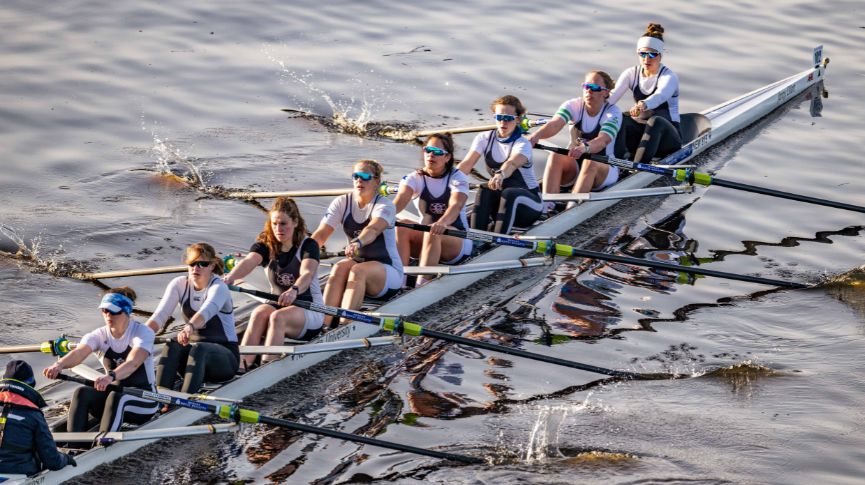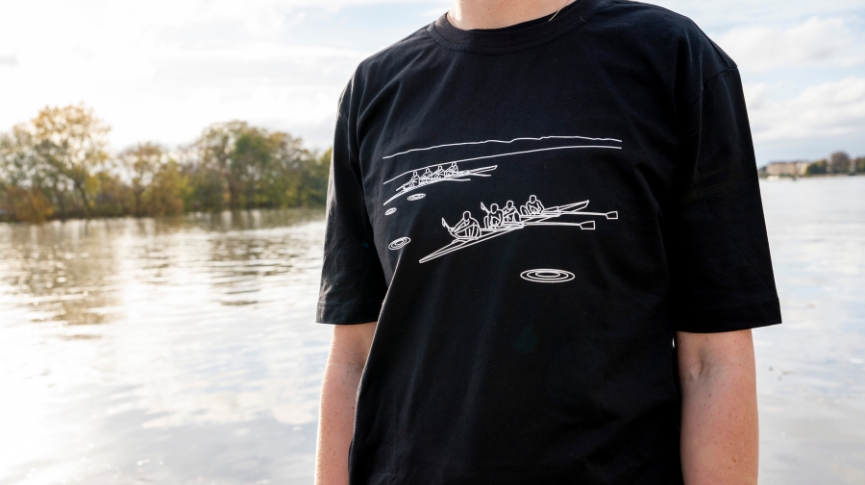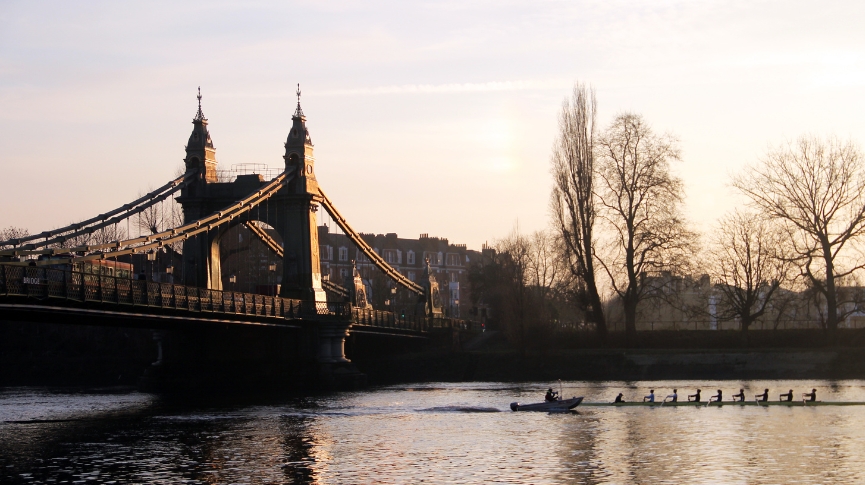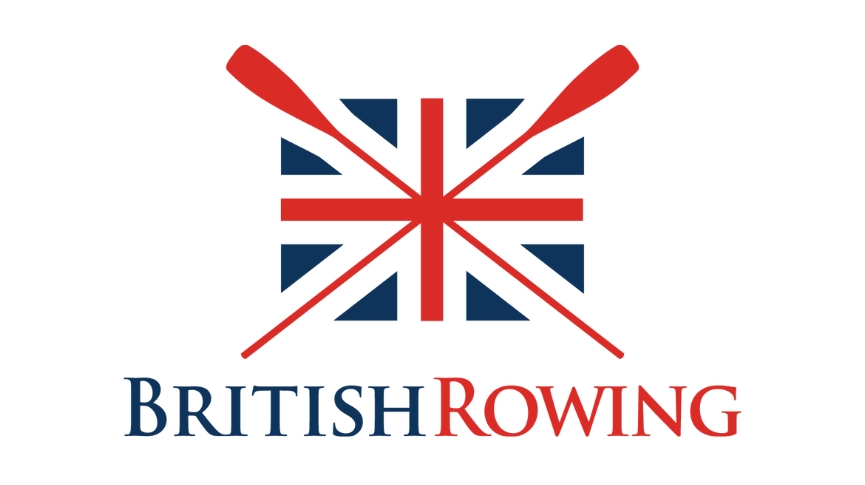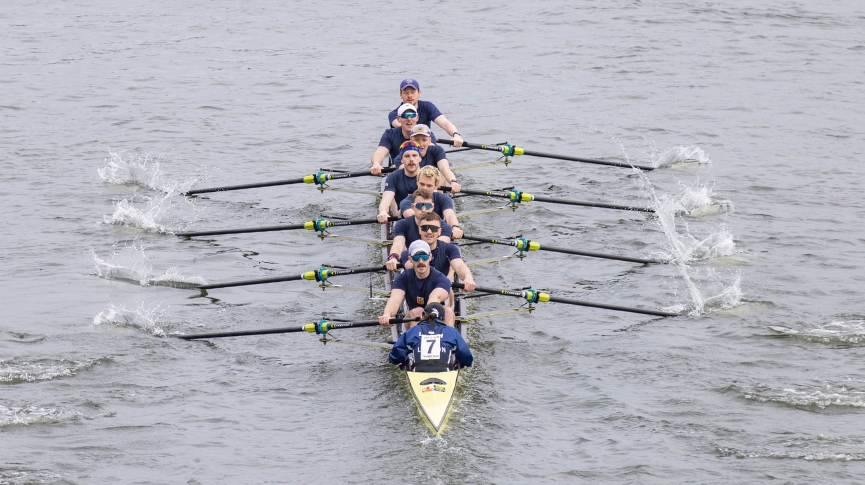“To finally get the gold was so overwhelming,” Liv Cheesmur reflects on an outstanding season for club and country
On The End of The Island Podcast, Fergus Mainland spoke with the U23 World Champion about racing the U23 Championships and her years at Molesey BC
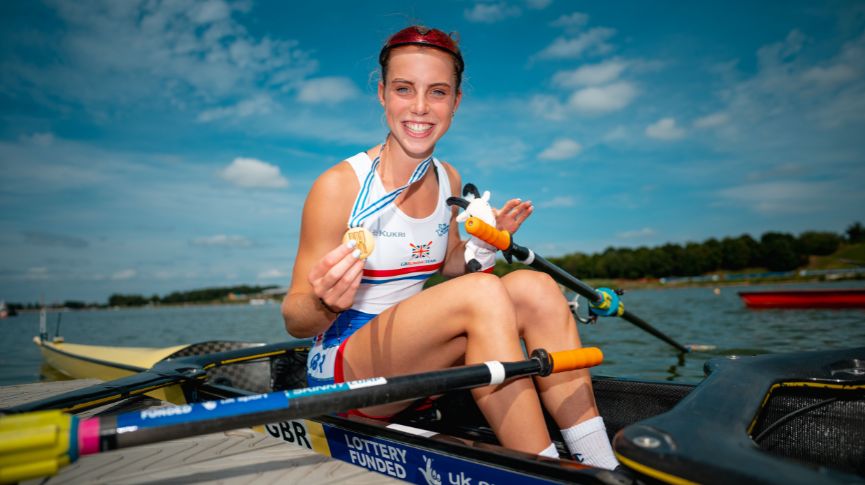
After returning home from conquering the world in Poznan, the magic of winning a World Champion certainly hasn’t worn off for Liv Cheesmur. It’s a medal that has been three years in the making for the Molesey BC stalwart, having won bronze and silver at the U19 World Rowing Championships in 2023 and 2024, respectively.
It’s a similar tale for everyone involved in the boat. Ellie Cooke and Finnola Stratton both returned from the quartet that won bronze last year, while Poppy Baker stepped up from the Double Scull that finished eighth overall in St. Catharines.
“We’ve all done different campaigns before at a World Championships, and I think that just means we’ve been in this game for a few years, always looking for the gold, explained Cheesmur.
“I don’t think you go to Worlds if you’re not trying to get a gold at some point. I think for the whole crew, it was a pretty emotional day to finally achieve that. Ellie has done the Quad three years in a row now; she’s got eighth, third, and first, so I think that’s pretty incredible. I’ve gone bronze, silver, and gold in my worlds, so to finally get the gold was so overwhelming, really.”
As with any U23 boat, the crew came together following Henley Royal Regatta. For Liv, who’s been at Molesey BC throughout her junior career, the regatta ended with her taking home a little red box after Molesey BC won the Wargrave Challenge Cup, obliterating the previous record time by 22 seconds in the process.
Under the steadfast leadership of Sam Tuck, himself a HRR winner with the club, supported by Ellie Stevens, Iona Riley, and Nina Castagna, the women’s squad at Molesey BC has transformed into one of the strongest and deepest in the country.
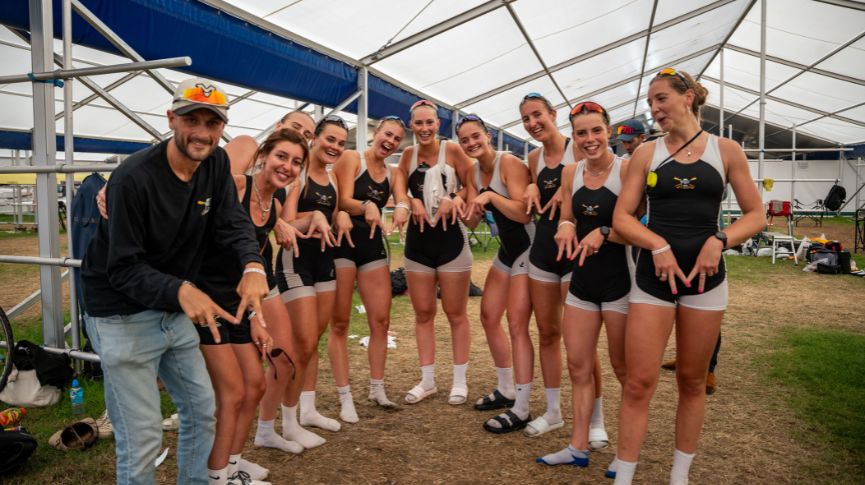
“I think that [Molesey] has been so influential. At the beginning of the year, we did time trials against everyone in our singles to prepare for the early trials. We have people like Megan Slabbert, Ang Broughton, and Heloise Wormleighton who did the trials all year, so I was trying to get as close as I could! That was so helpful for me because I could see each week how close I could get to these people who were performing really well at senior level.
“I think that has definitely been helpful to have such a strong squad and good growth in the women’s squad. I also think having a club project [the Wargrave Challenge Cup] we were all super invested in was really helpful. It took the stress and pressure away from trials because it can be quite overwhelming if you don’t have other competitions to enjoy, so that’s been amazing as well.
“We had done a lot of trials throughout the year, and the trials system, particularly if you’re U.K. based, is very extensive. I had spent a lot of time in the single, especially early in the year, so it was a case of prioritising as you get to a massive event. You do need to spend time in the crew, and then when I got to trials, it was about refocussing as fast as we could into sculling again. There’s a lot of similarities between the disciplines, and I’ve been a sculler much longer than I’ve been a sweeper, so I would try and flip back into it as quickly as I could.”
Great coaches have been a consistent theme throughout Cheesmur’s career to date. The U23 campaign was no different as she teamed up with Reading University BC’s Performance Coach Chris Bartley. The Olympic silver medallist has been at the club since 2016 and has played an instrumental role in creating a sculling dynasty at Reading.
Barltey also has a wealth of experience at U23 level as well. Back in 2006, he won the Lightweight Coxless Pair and set a new world best time in the process.
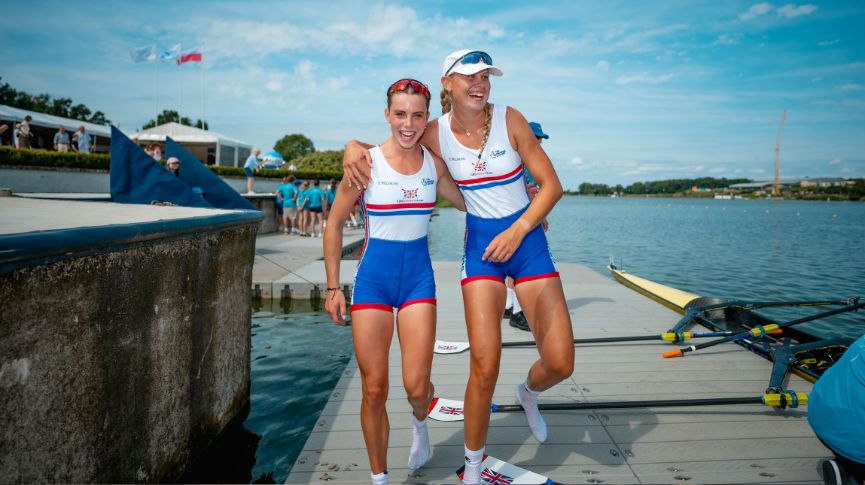
“Quite early on, we had a sculling briefing with Chris [Bartley], and he’s incredible,” explained Cheesmur, who will start studying at Princeton University in the autumn.
“He’s so good with data, he really explained to us the goals, the targets, and how we’re going to race. We went into the final campaign knowing the ideal race plan for the final and how we were going to get the speed to try and win. He showed us winning speeds for the last few years, winning race plans with where the speeds were at their max and where they dropped.
“That was pretty good because we all went into the project with a very clear idea of what we were trying to achieve. Then, we tried to achieve the main technical focus on the water as a quad and individually, as well as using telemetry. We’re now able to use that as the World Championships, so that was a good tool for us to use on the water, but then discussing and evaluating whether we had actually achieved that after sessions was good.
“Chris uses data in an exceptional way. I’ve never seen that before. I think that sort of approach to data is something I’ve learned from. I think seeing telemetry every day and seeing how it changes depending on you that day, and how you can be quite consistent, but you can have a random day where you are lower, but nothing is necessarily wrong. I think that’s been a good learning experience, getting to see all the curves and what to work on has been a big thing that I’ve learned from Chris.”
While Liv is set to return to the world of academics in a few weeks’ time, this U23 baptism has been nothing short of flawless. Despite stepping up an age group and into an arena packed with Olympic experience, Cheesmur has embraced every step of the journey and is ready to take on these lessons to university and back into a boat.
“It helped because there was a lot of trust, and everyone had had quite similar experiences. That helped us because every World Championship campaign is probably going to have some difficulties and some ups and downs. I don’t think anyone is able to complete the programme as fully as they’d ideally like to, so it helps to build trust on and off the water. To know that the people in your boat have those experiences, have done this before, and are going to respond well under pressure when you arrive, and they want it as much for each other as they do themselves.
“The Reading girls are exceptional scullers. The way they row their quads has been incredible to sit behind and learn from them, and Poppy has a lot of experience too. All their experiences that we’ve all spoken about throughout this campaign and what we’ve learned is something I will continue to think about.”


